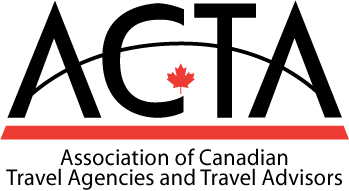Update on CASL, Anti Spam regulation
Canada's Anti-Spam Legislation (CASL) establishes regulation that sets rules for the distribution of promotional emails and texts. On July 1, 2017, the three-year transition that allowed organizations to rely on implied consent based on a prior relationship and communications comes to an end. In addition, the coming into force of an obscure anti spam rule that allows consumers to sue retailers and marketers for $200 over unwanted emails. This could have significant repercussions for non-compliance.
The Association of Canadian Travel Agencies (ACTA) is supporting their members to comply with Canada's New Anti-Spam legislation by offering our members an Anti-Spam resource to help you understand the issues, clear any confusion and comply with the new legislation.
The ACTA Anti-Spam resource includes summary documents that break down the legislation into a context that is specific to the retail travel trade and a FAQ is being offered to help answer some of the more common questions. These materials are free for ACTA members and available for download. Additional questions can be directed to Marco Pozzobon, mpozzobon@acta.ca
RELATED STORY:
Jason Unrau, www.blacklocks.com
Small businesses are appealing to cabinet to delay an obscure anti-spam regulation to take effect in six weeks. Effective July 1, consumers can sue retailers and marketers for $200 over unwanted emails. An Industry Canada memo obtained through Access To Information cited a “deluge of litigation”.
Anti-spam legislation enacted in 2014 delayed enforcement of the right of action provision that allows consumers to take marketers to court. “It will allow an individual who believes he or she has been affected by a breach of key provisions of Canada’s anti-spam legislation – e.g. unsolicited messages, altering transmission data, installing of computer programs – to apply to the court for compensation under the private right of action,” noted an industry department memo.
The memo Private Right Of Action noted industry concerns the July 1 start date could result in a “deluge of litigation”, but added: “Other jurisdictions, e.g. the U.K. and New Zealand, have very similar provisions in their anti-spam laws.”
The Federation’s Moreau said consumers already have access to adequate software to filter spam. “The government’s idea that it wants to make innovation and e-commerce a priority cannot go hand-in-hand with this legislation,” said Moreau.
‘Maybe Errors Are Made’
David Elder, counsel to the Canadian Marketing Association, said the regulation appeared vague and should be delayed pending a statutory review of the legislation. “It would give the regulator and the regulated companies time to figure things out before being hit with the private right of action,” said Elder.
“It may be too early in the game to introduce a new enforcement regime without looking at the whole legislation, how it’s working – or not working,” said Elder. “Known and reputable companies are trying to stay within the parameters of the law. Maybe there are missteps or errors that are made, but most domestic unsolicited email traffic is manageable.”
Bill C-28 An Act To Promote The Efficiency & Adaptability Of The Canadian Economy restricts unsolicited email, with exemptions for messages to current customers; warranty and bank notices; and responses to emailed questions.
Consumers with a private right of action alleging breach of the Personal Information Protection & Electronic Documents Act must bring claims within 3 years and detail “actual loss or damage” for compensation to a maximum $200 per contravention. More serious breaches such as malicious installation of software permit compensation claims up to $1 million.
The bill is due for statutory review this year. “We have heard from a variety of businesses and stakeholder groups,” said Hans Parmar, spokesperson for the industry department. “We’re actively reviewing how best to support consumer trust in the online market while not unduly burdening legitimate business.”
Six-figure spam fines have been levied to date by the Canadian Radio Television & Telecommunications Commission. Porter Airlines Inc. in 2015 paid $150,000 and agreed to submit annual compliance reports to regulators after sending emails to consumers who’d unsubscribed from the airline’s contact list.
